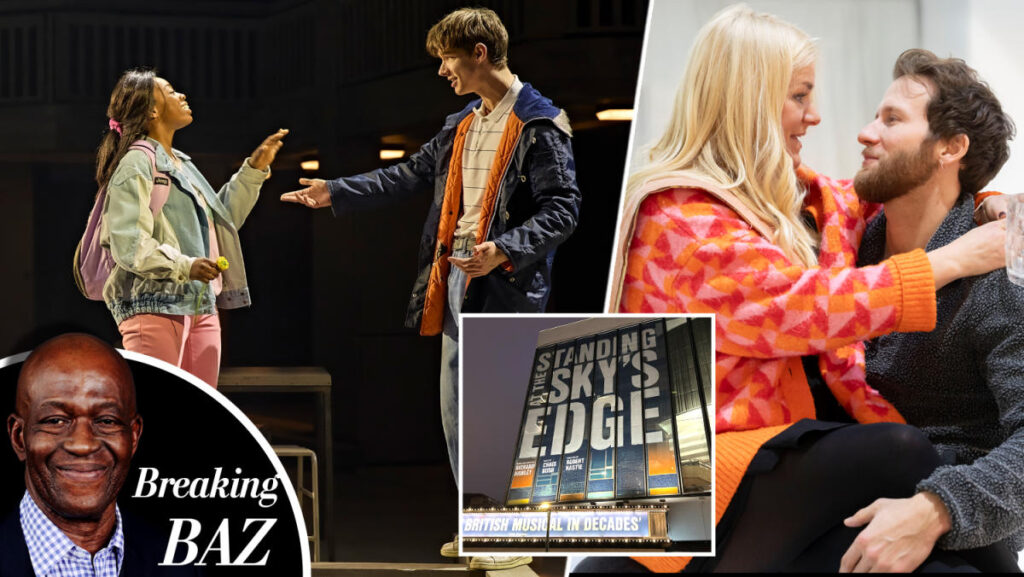
EXCLUSIVE: BBC commissioning executives are booked to see the award-winning musical Standing at the Sky’s Edge, which opens Wednesday night at the Gillian Lynne Theatre following its transfer from a sold-out season at the National Theatre. This column told you a year ago that StudioCanal’s RED Production company is developing the musical into a TV drama series.
The TV production will be based on the stage show by playwright Chris Bush and glorious songs from the catalog of singer-songwriter Richard Hawley. Sources tell me that a deal is strongly favored between RED and the BBC.
More from Deadline
Bush is writing the screenplay for the series, expanding the storylines for characters they created for the show that originated at Sheffield’s Crucible Theatre in south Yorkshire in 2019, having been commissioned by Sheffield Theatres and producer Rupert Lord’s Various Productions.
RED pounced quickly and took out an option on the show at that early stage of the musical’s life.
It was a prescient move because since then, Standing at the Sky’s Edge has won the coveted theatre trophy from Melvyn Bragg’s Sky Arts South Bank Show Awards (full disclosure: I was a member of that awards judging panel), the Olivier Award for Best Musical and other top honors.
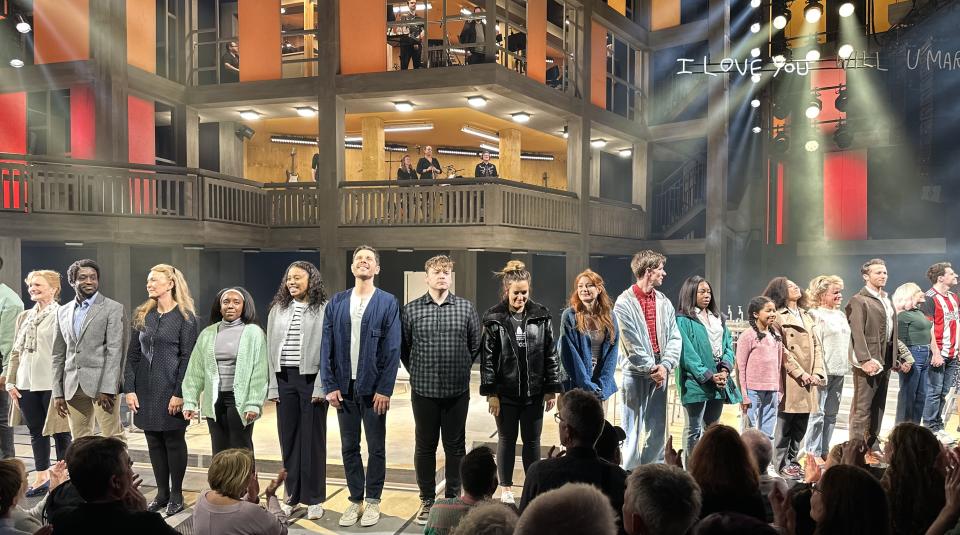

The pandemic halted its momentum, however producer Various Productions contracted a deal with the National Theatre for it to move into the NT’s Olivier auditorium — a building perfectly suited for a story set in Park Hill, a brutalist apartment block built in the early 1960s to accommodate families who’d previously been confined to the region’s slum dwellings.
Standing at the Sky’s Edge is a heartfelt epic that follows three families who occupy one particular flat at different periods over six decades. Park Hill is a character in its own right, and designer Ben Stones’ set superbly captures the structure’s original concept described as “streets in the sky.”
Because of the width of the Gillian Lynne’s thrust stage, Stones has been able to expand on the work he created for the Crucible and the Olivier, with a grand, sweeping balcony and a staircase.
Director Robert Hastie, artistic director of Sheffield Theatres, and choreographer Lynne Page have also taken full advantage of the refit in such a way as to make its dance numbers, with close to 30 cast members, seem epic, and the smaller moments with two or three actors appear intimate.
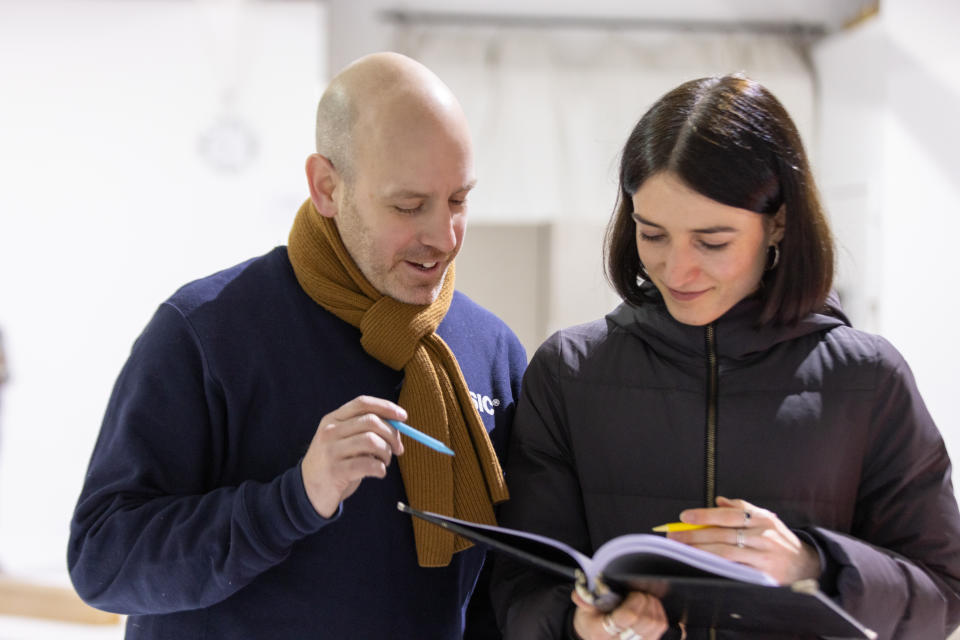

As Hastie put it when I saw the show recently (for the fifth time since 2019), “with each new production in Sheffield and London, we haven’t added a word to Chris’ book, but we’ve been able to add layer upon layer of detail.”
During its runs at the Crucible and the NT, performers from local theatre groups augmented the show’s crowd scenes but weren’t allowed to sing. However, at the Gillian Lynne, the various swings and covers now fill those roles, which says Lord “gives us eight extra singers” so that there are moments — ecstatic moments — when a soloist performs accompanied by a chorus scattered across the stage often on different levels. It’s utterly enthralling.
This is the rare instance of a show, already a masterpiece, being able to develop through its various iterations over the years and become even more of a marvelous work of art.


And, no surprise then that I should bump into Robert E. Wankel, chairman and CEO of The Shubert Organization, on one of his regular visits to the West End, and on occasion beyond. He and his party, at least when I glanced at those of them in front of and behind me, seemed enraptured.
Wankel, rightly, wasn’t giving much away. However, he left in a merry mood.
My thought about New York though is that Standing at the Sky’s Edge might be a better prospect for Lincoln Center. Perfect home for a masterpiece.
Gotta say something about the cast!
The one constant through the versions I’ve seen is Rachael Wooding playing a newlywed who, with her husband, played by Joel Harper-Jackson, are among the first set of residents to be housed in Park Hill. Wooding beautifully captures the heady giddiness of that early hope and a sense of northern grit combined with heartache when life takes a different turn.


Apologies. Adam Price, who plays multiple roles, was also a member of the original company. And Nicola Sloane — I’ve seen every one of her performances in London since, well, certainly 1995, and in smaller roles before then — was also at Sheffield and the National.
By the way, Harper-Jackson was the understudy who, rather heroically, took over when Taron Egerton withdrew for personal reasons from the West End revival of Mike Bartlett’s play Cock, joining Bridgerton’s Jonathan Bailey, Jade Anouka and Phil Daniels in the limited run two years ago.
Samuel Jordan, who joined the Sky’s Edge cast during the show’s post-pandemic run in Sheffield and at the NT, has grown into the role of Jimmy, a young man whose life becomes intertwined with a neighbor played by Elizabeth Ayodele, a newcomer to the ensemble. Both bring delicate notes, and depth, to what could be called the Romeo and Juliet roles. As Frank Rich the former New York Times theater critic used to say, at the heart of all great musicals is a love story between a “boy and his gal.”
Laura Pitt-Pulford, a first-rank musical theatre artist, and Lauryn Redding, with her powerful voice, are also new to the show. Both excel in roles that I won’t give away here. Don’t want to get in trouble for spoilers!
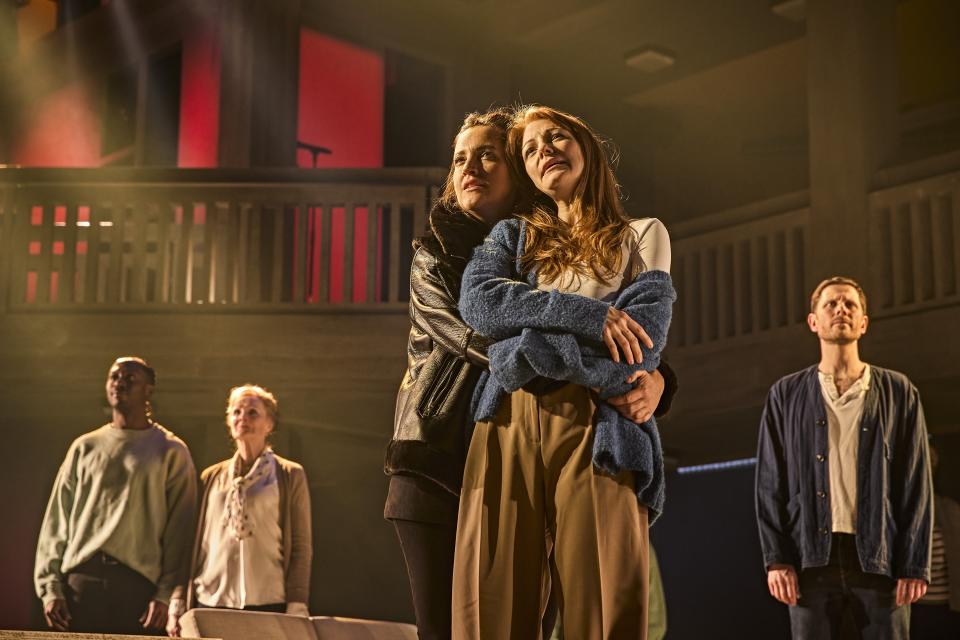

There’s not a duff note in this company. Every single performance is one of quality.
Here’s the cast, not including those mentioned prior: Alana Anderson, Jonathan Andre, Monique Ashe-Palmer, Jonathan Bentley ,Adam Colbeck-Dunn, Viquichele Cross, Jamie Doncaster, Caroline Fitzgerald, Luca Foster-Jejeune, May Fox-Scott, Renée Hart, Sharlene Hector, Jerome Lincoln, Mel Lowe, Eric Madgwick, David McKechnie, Sean McLevy, Rachael Louise Miller, Baker Mukasa, Alistair Natkiel, Chioma Nduka, Sam Stocks, Lillie-Pearl Wildman and Karen Wilkinson. Stuart Burt cast the adults and Chloe Blake handled children’s casting.
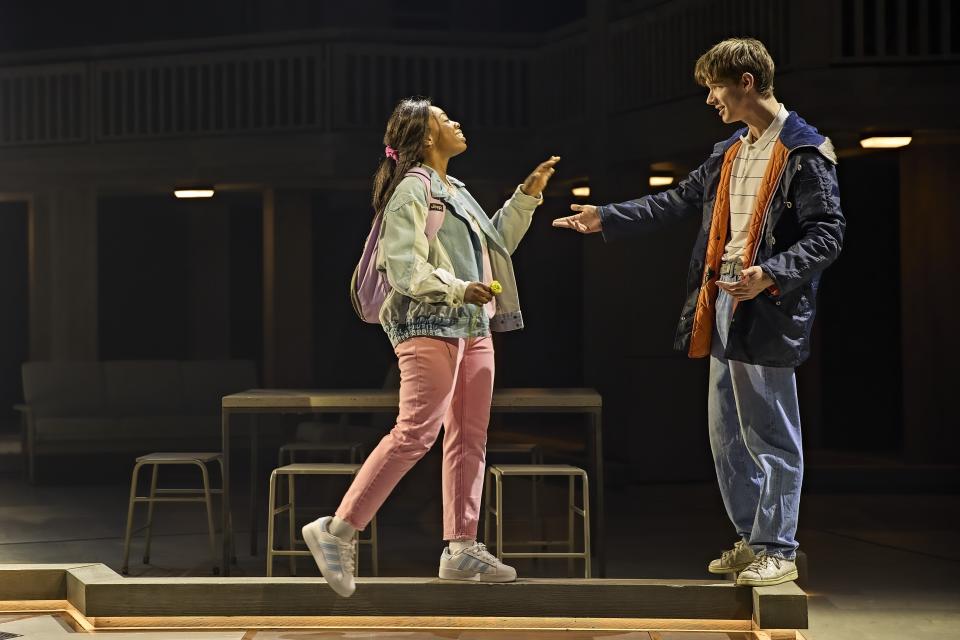

Tom Deering has superbly orchestrated and arranged Hawley’s sublime array of songs and an eight-piece band led by musical director Alex Beetschen just takes off in the Gillian Lynne thanks to Bobby Aiken’s soaring sound design.
“My note to Bobby was, ‘I want the seats to rumble, please.’ There’s just more dynamic range,” notes Rupert Lord.
Yeah, that’s true. Standing at the Sky’s Edge has an epic dynamic in the Gillian Lynne.
Lord says a friend of his remarked that the show was like widescreen at the National ”but it feels like Imax at the Gilly Lynne.”
“With everything Bob Hastie, Lynne Page, Ben Stones, Bobby Aitken and everyone — every department has been brilliant — has done on this iteration, it feels like strapping a jet engine on the back of a Ferrari,’ he says.
That’s true, too.
Standing at the Sky’s Edge feels very much at home at the Gillian Lynne. It’s a triumph for Sheffield Theatres, Various Productions, the might of the National Theatre and for Andrew Lloyd Webber’s LW Productions which controls the Gillian Lynne.
Sadly, that’ll piss off Bob Geldof, who whispered to me at the Charles Finch-Chanel pre-BAFTA dinner that he had a hankering for the hit Live Aid musical Just For One Day to transfer later this year from the Old Vic to the Lynne. If my strong hunch about Standing at the Sky’s Edge counts for anything, Sir Bob will have a long wait.
Next time Geldof sees me he’s likely to tell me, in his kind and loving way, to “f*ck off.” And I welcome such a salutation.
WHAT ELSE DID THE SHUBERT ORGANIZATION BOSS SEE ON THE WEST END?
The Shubert Organization’s chairman and CEO Wankel caught up with several other shows during his trip to the West End.
They included “the Sarah Snook show” — that’s Wankel referring to the Succession’ star’s acclaimed multiple performances in the Michael Cassel, Adam Kenwright and Sydney Theatre Company production of The Picture of Dorian Gray, adapted and directed by Kip Williams. As noted in a recent column, Cassel revealed that it’s up to the much-garlanded Snook whether her rich portraits of 26 characters will be seen on the Broadway stage.
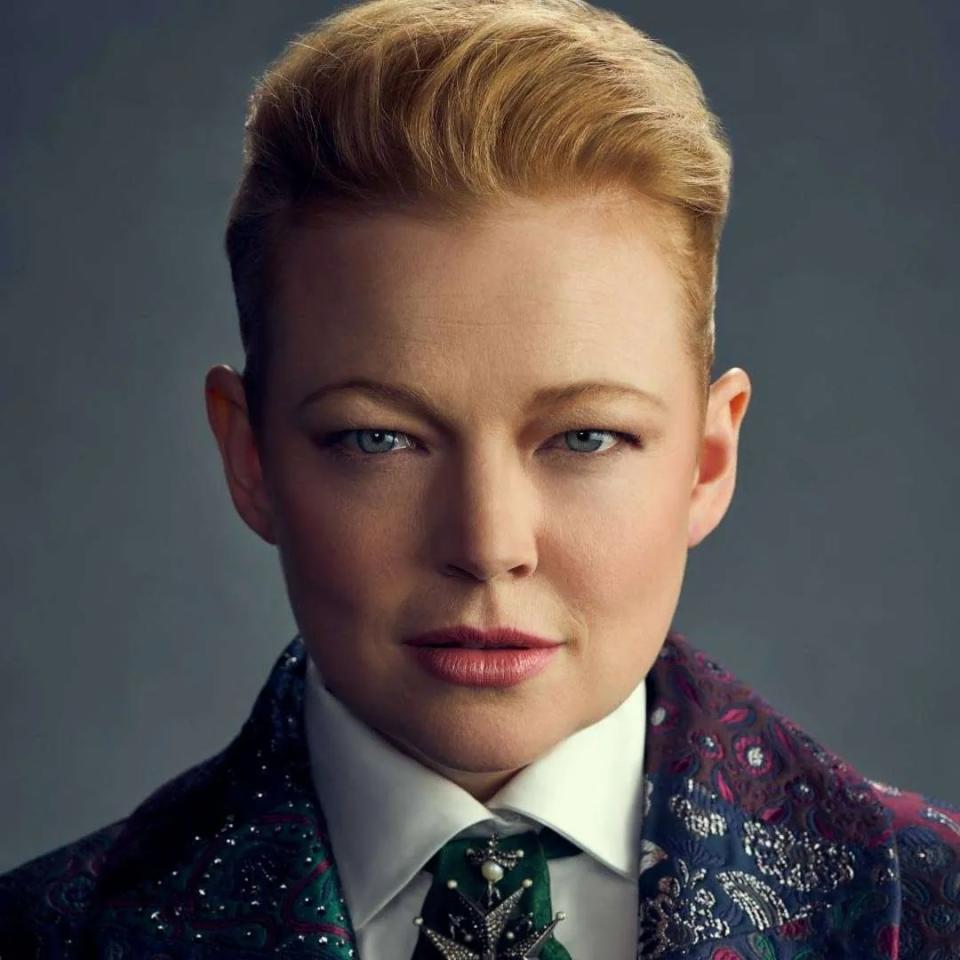

Wankel and his team also traveled the short distance from the West End across the River Thames to the South Bank to catch Beth Steel’s hilariously heartfelt new play Till the Stars Come Down — the year’s best original drama so far — that’s playing in the National’s Dorfman Theatre until March 16.
It’s set in the industrial East Midlands, the region from which Steel hails; think of the white working-class districts of Pennsylvania and Michigan and you get an idea of where Steel locates her story of Sylvia and Marek’s wedding.
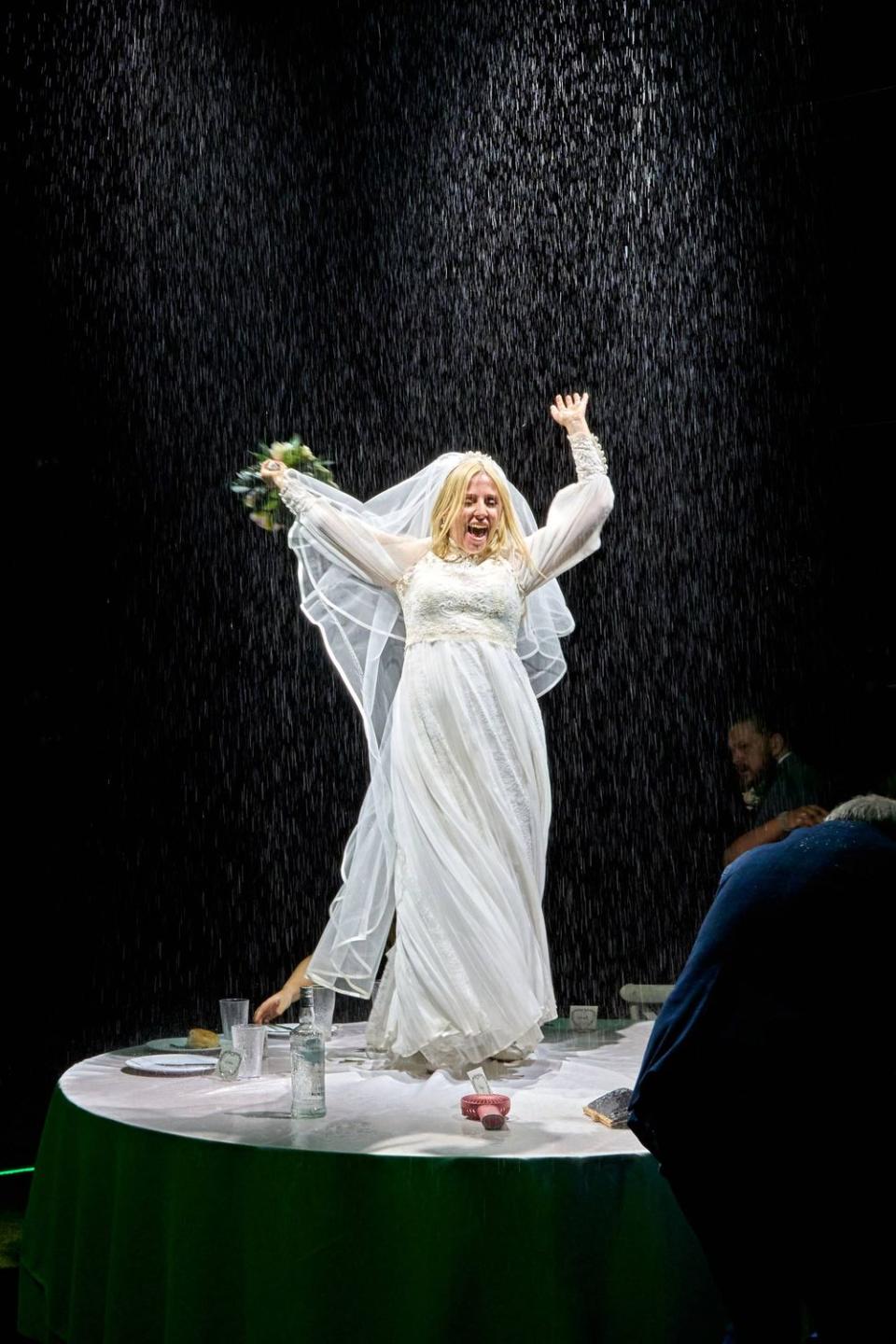

Sylvia, the last of three sisters to marry, is played by Sinéad Matthews, and Marek, a Polish worker who has established his own business, is played by Marc Wooton. Their nuptials are attended by her family.
You know weddings, right? The shiny veneer goes right off ‘em both during and after the reception.
Although the tale’s really about the three sisters (as played by Lucy Black, Lisa McGrillis and Matthews), it’s Aunty Carol, played by Lorraine Ashbourne — a comic genius in curlers and platform wedge shoes — who wafts in and steals every scene she’s in with lines the majority of which I cannot repeat here because they contain words I believe are not used even in impolite society in the U.S.
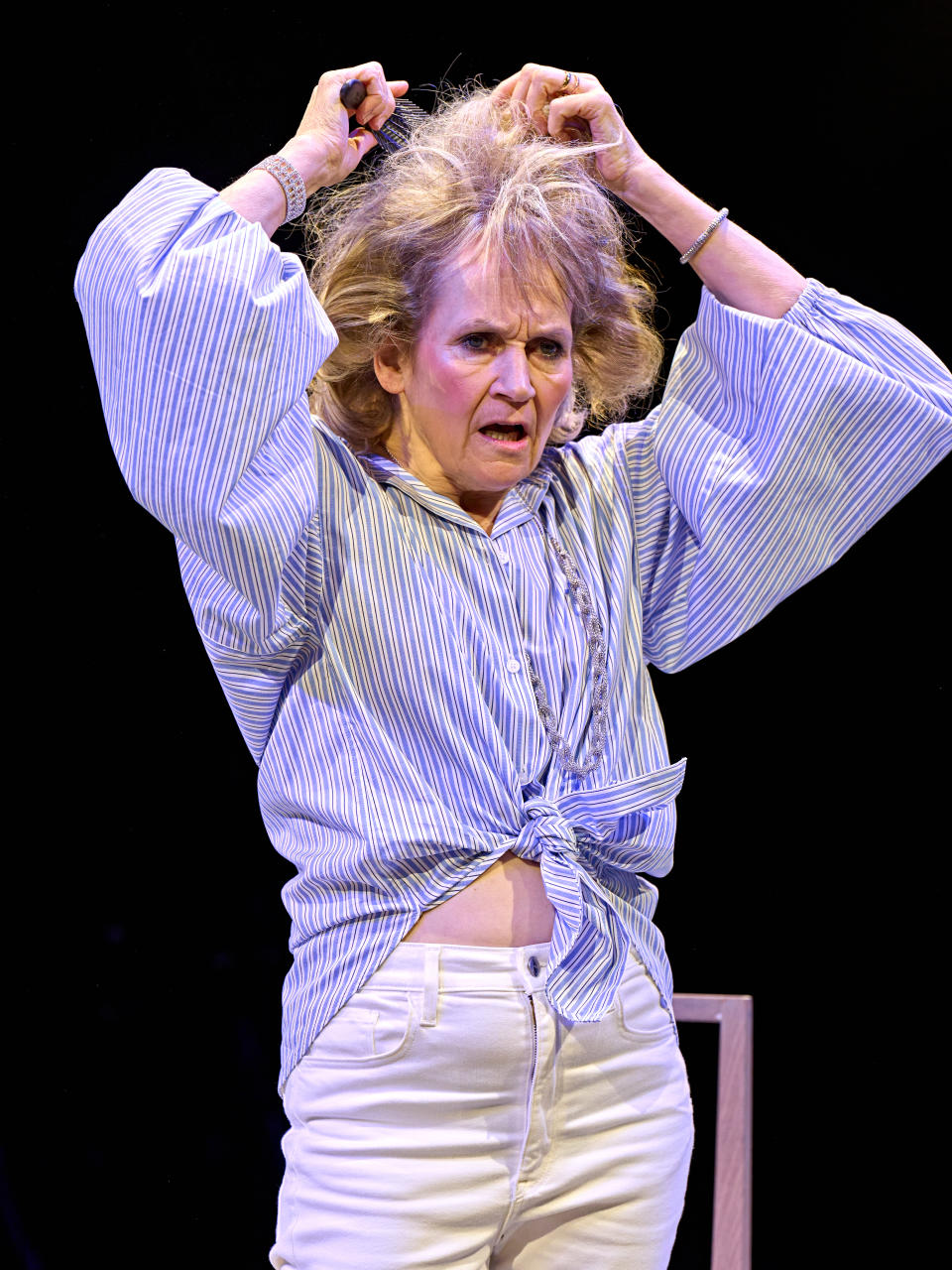

Director Bijan Sheibani has assembled a crack cast that includes the aforementioned Ashbourne, Black, Matthews, McGrillis and Wooton, along with Derek Riddell, Ruby Stokes, Philip Whitchurch and Alan Williams. Bodhi Rae Breathnach, Maggie Livermore and Cadence Williams share the role of Sarah, Sylvia’s schoolgirl niece.
The NT’s on fire because this is another example of a company that, seemingly effortlessly, finds the heartache and laughter of a once close-knit family that the cost of life has fractured. It’s like watching Chekhov set in Derbyshire and Nottinghamshire reimagined by a Danish Dogma crew, only with more laughs and dancing.
There’s a strong possibility of Till the Stars Come Down transferring into the West End once there has been a conversation about actors’ schedules and theatre availability. And I reckon that if Lynn Nottage’s Pulitzer Prize-winning Sweat can play the Donmar and the West End here, then Till The Stars Come Down has a chance in the U.S.
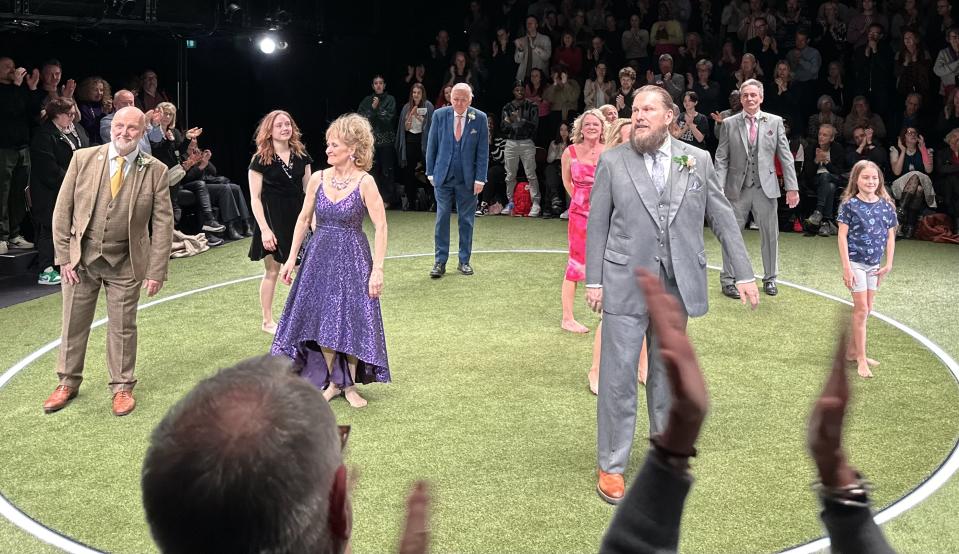

Wankel also saw director Luke Sheppard’s splendid Live Aid show Just For One Day at the Old Vic, mentioned elsewhere in this column.
I, on the other hand, also popped into the Noel Coward Theatre to catch up again with Jack Thorne’s excellent The Motive and the Cue, which transferred from the National’s Lyttelton Theatre. This is the super, award-winning play (I was on the Evening Standard jury that awarded it best play of the year) directed by Sam Mendes, about when John Gielgud directed Richard Burton in Hamlet on Broadway in 1964. There have been some cast stages, but the central roles of Burton, Gielgud and Elizabeth Taylor are still portrayed by Johnny Flynn, Mark Gatiss and Tuppence Middleton.
Aspiring thespians should see it if they can, to look and learn from what Gatiss does with his Gielgud. It’s an unmissable performance.
Wankel saw this National Theatre and Neal Street Production on a previous visit, he tells me. I have a feeling that if Mendes and Neal Street’s theatre partner, Caro Newling, and their principal cast members can fit it into their busy schedules, then we’ll hear about a transfer to Broadway.
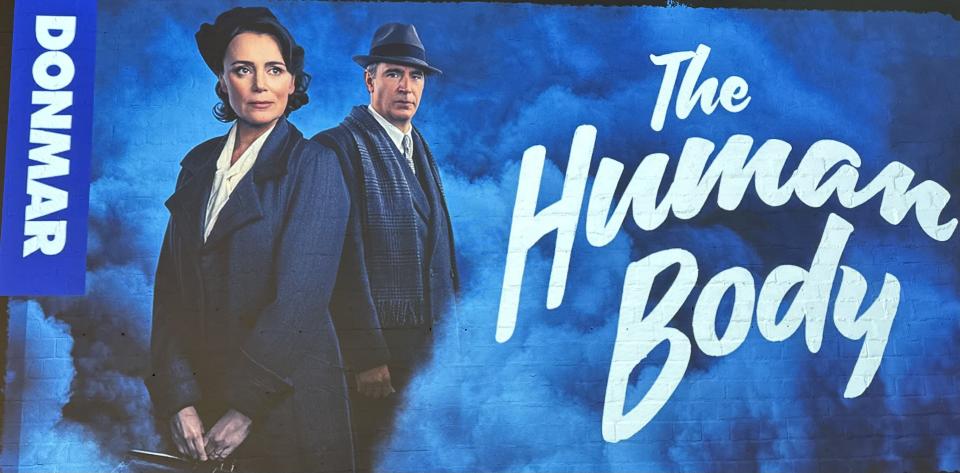

I didn’t get to ask Wankel what he thought of Lucy Kirkwood’s The Human Body, starring a fine Keeley Hawes and Jack Davenport at the Donmar Warehouse. Nor did we have time to discuss Jez Butterworth’s new drama The Hills of California now on at the Harold Pinter, directed by Mendes and produced by Neal Street and Sonia Friedman Productions.
Who knows? He might have had a merrier view of them than this columnist.
Best of Deadline
Sign up for Deadline’s Newsletter. For the latest news, follow us on Facebook, Twitter, and Instagram.


